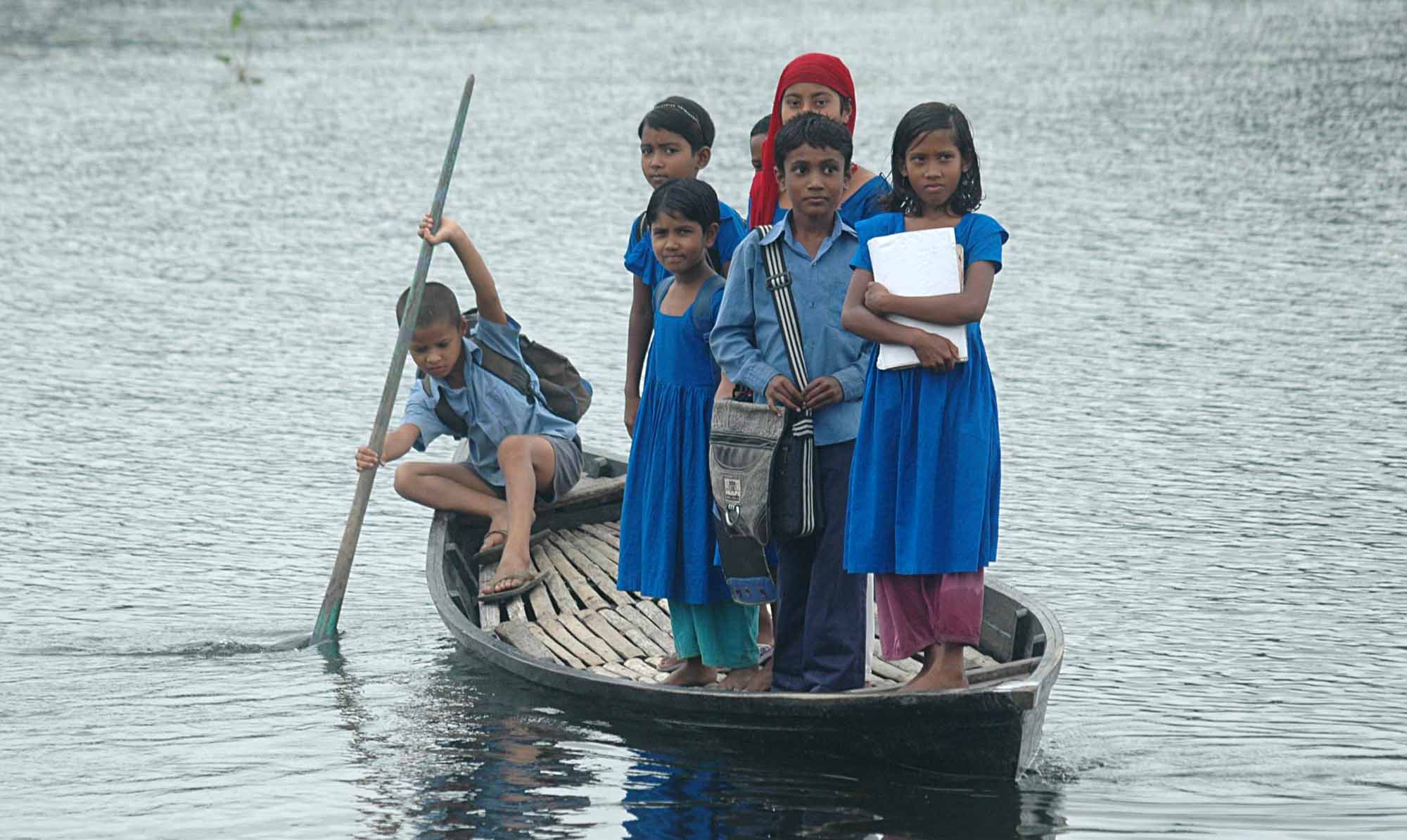The final draft of the National Education Policy 2009 was formally submitted to Prime Minister Sheikh Hasina by Education Minister Nurul Islam Nahid on 7 September.
"We hope that the government will be able to announce the new education policy by the end of December," Nahid told IRIN.
The policy will have to be mandated by the country's parliament, but is expected to win approval, since the current government dominates with almost four-fifths of the seats. It was developed by a 16-member National Education Commission, formed in April 2009, and which consulted widely.
Bangladesh's adult literacy rate is at 52.5 percent, while neighbouring India has a literacy rate of 65.2 percent, according to UN Development Programme (UNDP) 2008 figures.
"The new national education policy will make changes at the root levels of the education system," said co-chair of the commission, Qazi Kholiquzzaman Ahmad.
|
|
The development and implementation of a modern and efficient education policy has long been a source of public outrage in Bangladesh. Since the country's independence in 1971, seven education commissions and committees have been formed, but none of the policies they created were implemented because of a lack of political will from governments of the day.
The basic structure of the current policy has been in place since that year. Modifications have been made, but a complete overhaul of the system has long been overdue, say education experts, who praised the fact that public opinion had been taken into account in the policy's formation.
The policy document is available on the Education Ministry's website, and an email address is provided for the public to send in their views until the end of this month.
According to most education specialists, one of the biggest shortcomings of the current policy is the lack of practical and technical training in the curricula, leaving students vocationally unprepared.
"The education system of our country doesn't equip the students with practical knowledge. This 'bookish' learning system is archaic, and needs to be updated according to the needs of a modern society," said well-known educationist and former government adviser Rasheda K. Choudhury.
Another major concern is the lack of proper human resource development and deployment in the education sector. A dearth of proper teacher training facilities has long been a source of concern.
|
One of the key proposed changes will see total schooling years increased from 10 to 12. This includes the extension of free, mandatory primary school education by three years to a total of eight years.
The policy will establish mandatory core subjects for primary-level education: Bangla, English, mathematics, Bangladesh Studies, social environment and climate change, and information technology and science.
Bangladesh's religious education system, where `madrasahs' or Islamic schools focus primarily on Islamic teachings, will also be modernized to reinforce the importance of science and information technology in their curricula.
A girl's right to education will also be a primary concern of the new policy, while there will be efforts to ensure indigenous children can learn in their own languages.
ao/ey/cb
This article was produced by IRIN News while it was part of the United Nations Office for the Coordination of Humanitarian Affairs. Please send queries on copyright or liability to the UN. For more information: https://shop.un.org/rights-permissions






